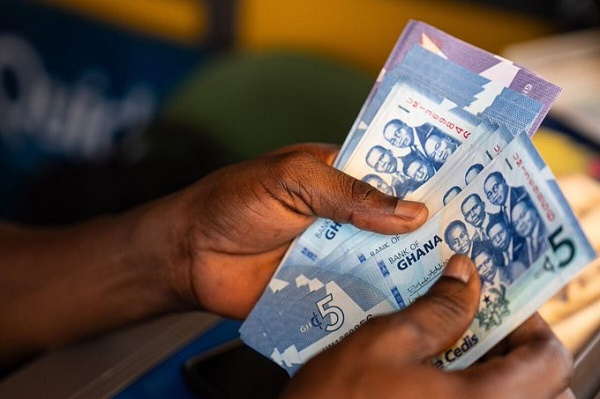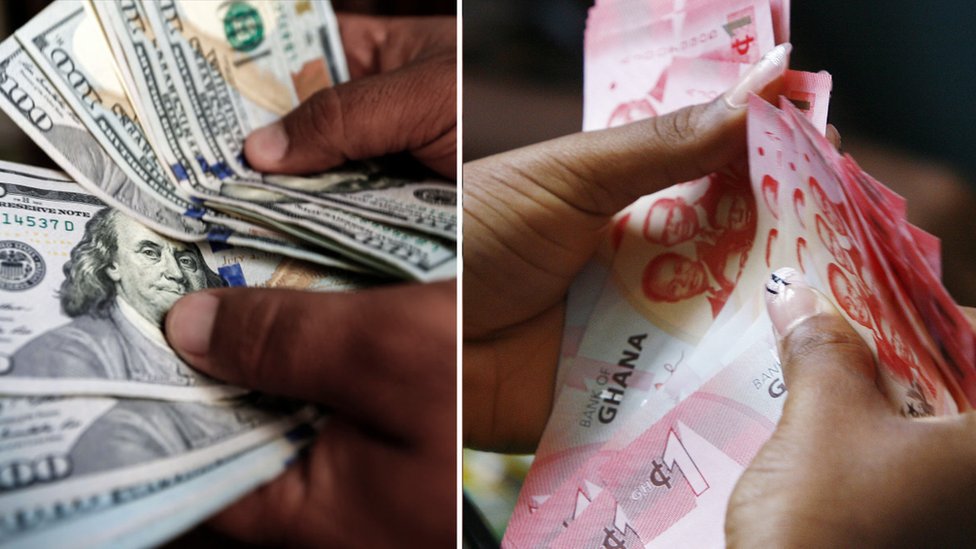A significant portion of the working Ghanaian population – 64 percent – are financially stressed, says a study dubbed Old Mutual Financial Services Monitor (OMFSM).
The study, which was carried out in four African countries – South African, Namibia, Kenya or and Ghana, revealed that 72 percent of lower income earners in the country are stressed; with those in the informal sector worst-affected at 68 percent. This makes Ghanaian consumers the most financially stressed among the four countries.
The report also highlighted that income security is the top priority for Ghanaian consumers, followed by managing their expenses downward – such as putting major expenditure plans on hold, switching to more affordable retail brands and repairing and maintaining existing assets, and ensuring that their investments are secured.
“We found that Ghanaian consumers are incredibly stressed among the four countries where we did the survey, which are South African, Namibia, Kenya and Ghana. Ghana comes highest in terms of financial stress and people are extremely worried about income security. Their number-one priority is ensuring that they earn income, whether through business or their jobs.
Their second priority is ensuring that their savings are insured and their investment is secured,” said head of knowledge and insights at Old Mutual, Vuyokazi Mabude.
With regard to income, 44 percent shared that they rely on a single source of income; while about 1 in 4 (24 percent) are poly-jobbers – side-hustling, freelancing and doing after hours work in addition to their regular job.
“Poly-jobbers are more prevalent among those earning GHȼ3,000 or more (37 percent). Through further encouraging and supporting entrepreneurship, we expect this percentage may grow as we have seen among younger consumers in South Africa – thus helping to address the youth unemployment issue in Ghana,” the report indicated.
• Income security tops priority for many
• 44% rely on a single source of income
• 61% dips into their savings monthly to make ends meet
• Only 37% actively saves for retirement
Savings
The report has it that saving is important to Ghanaians, with 25 percent of their household allocation going toward savings. However, the focus is on short-term saving rather than longer term investing for the future. This is further evidenced by 61 percent who admit dipping into their savings to make ends meet.
Thus, Ms. Vuyokazi Mabude noted that: “The saving behaviour we see in Ghana is positive; however, the risk is immature saving – whereby people are saving and using that money to make ends meet. So, 61 percent of Ghanaians currently tap into their savings to make ends meet every month which poses a risk from the long-term financial wellness perspective. And also from a financial goals priority perspective, because that is money being taken away from children’s education, building businesses and building their home”.
Just as with Kenya and Namibia, retirement savings does not make it to the top set of working Ghanaians’ savings goals – ranking only 8th; and this percentage is particularly low among younger and less affluent consumers earning less than GHȼ3,000.
“Only just over one-third say they are actively saving for retirement, 37 percent; and only 7% note having a retirement annuity product. Furthermore, there is low confidence in the adequacy of their retirement savings (18 percent). Potentially driving the lack of action to save for retirement is an attitude of dependency on children to provide support when they retire,” the report stated.
Generally, given the recessionary environment, consumer confidence in the Ghana economy is low, with less than one in six of working Ghanaians showing confidence in the economy.
Other findings and recommendations
The Old Mutual Financial Services Monitor results reveal that while working Ghanaians are resilient, self-reliant, positive and persevering to make ends meet, their noted short-term focus flags the risk of a working population who will continue struggling to manage their day-to-day livelihood due to their dependence on savings being used as an expense management vehicle.
The dependency on savings to address their day to day needs and fund their businesses places a huge strain on consumers, as they struggle to keep their savings-pot filled. Looking for additional ways of sourcing income through poly-jobbing may help reduce the need to tap into savings for short-term needs.
The study highlights a need for financial education, in particular money management and budgeting.
“Furthermore, the role of employers in helping to educate and inform employees in a manner that is understandable and relevant to their needs is not being met.
“The more Ghanaian consumers are equipped to manage their day-to-day affairs, the less reliant they will be on their savings in the short-term – allowing for incremental growth to sustain them in the medium-term,” it stated.
With this at hand, Chief Executive Officer-Old Mutual Ghana, Tavona Biza, assured that his outfit will take further measures in terms of its products to help citizens change the narrative and become financially resilient.
OMFSM
The Old Mutual Financial Services Monitor (OMFSM) is an annual study that offers invaluable insights by focusing on a key cohort in society – namely employed Ghanaians, who account for about 60 percent of the Ghanaian population aged 25 to 59 years and earn an income of GHȼ1,000 or more, and who reside in urban and peri-urban areas.
Source: B&FT




